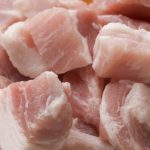No Government interventions on food pricing
Secretary of State Therese Coffey has told members of the Environment, Food and Rural Affairs (EFRA) Committee that no market intervention is being planned by the Government surrounding the price of food along the supply chain.

When asked whether there would be any non-ELM support that the government is considering paying to farmers to help them with rising production costs, Coffey said: “I’m not going to pretend that there is going to be all sorts of extra packages coming in.”
Speaking about recent challenges within the British egg industry, she said that there had been some issues within the supply chain but that she didn’t believe that there was a shortage.
“I’m not going to be particularly critical of supermarkets,” Coffey told the EFRA Committee on Tuesday 6th December. “I think, overall, having a competitive supermarket environment has done a lot to help consumers.”
She explained that collaboration between farmers, processors and retailers is important, and that the UK Government had played a role in convening people together. She added: “[However], I don’t think we are at the stage of doing any market interventions directly when it comes to pricing.”
Urgent action
These comments come after the National Farmers’ Union (NFU) called on the government for “urgent action” to ensure home-grown food supply and avoid shortages.
Government faces a stark choice: back British food production in order to secure a home-grown supply of sustainable food or risk seeing more empty shelves in the nation’s supermarkets, the NFU warned.
NFU claimed that multiple farming sectors could soon be under threat from immediate supply issues caused by “a lack of fairness for farmers and growers throughout the supply chain.”
At a press conference, the NFU laid out some “key asks” for government. Among the asks, NFU requested that British food and farming be a political priority. It said that promises made by Prime Minister Rishi Sunak, in August 2022, need to be delivered, in particular: by establishing a new food security target, including a statutory duty to monitor and report on domestic food production levels annually, to hold a UK-wide annual food security summit and introduce a new target for public sector organisations to buy 50% of their food locally.
The Union said that agriculture and horticulture must also be seen as a vulnerable sector in regard to energy security. NFU president Minette Batters urged the Prime Minister Rishi Sunak to honour the commitments he made to support British farmers through the energy crisis and to set a target for the nation’s food security, with a statutory duty to report on domestic food levels.
Batters said that global volatility is “threatening the stability of the world’s food production, food security and energy security.”
She added that she fears the country is “sleepwalking into further food supply crises,” and that the Government and the wider supply chain should act now as “tomorrow could well be too late.”

 Animal protein companies must pivot in 2023 to secure future – Rabobank
Animal protein companies must pivot in 2023 to secure future – Rabobank British food businesses experiencing “chronic” labour shortages
British food businesses experiencing “chronic” labour shortages
